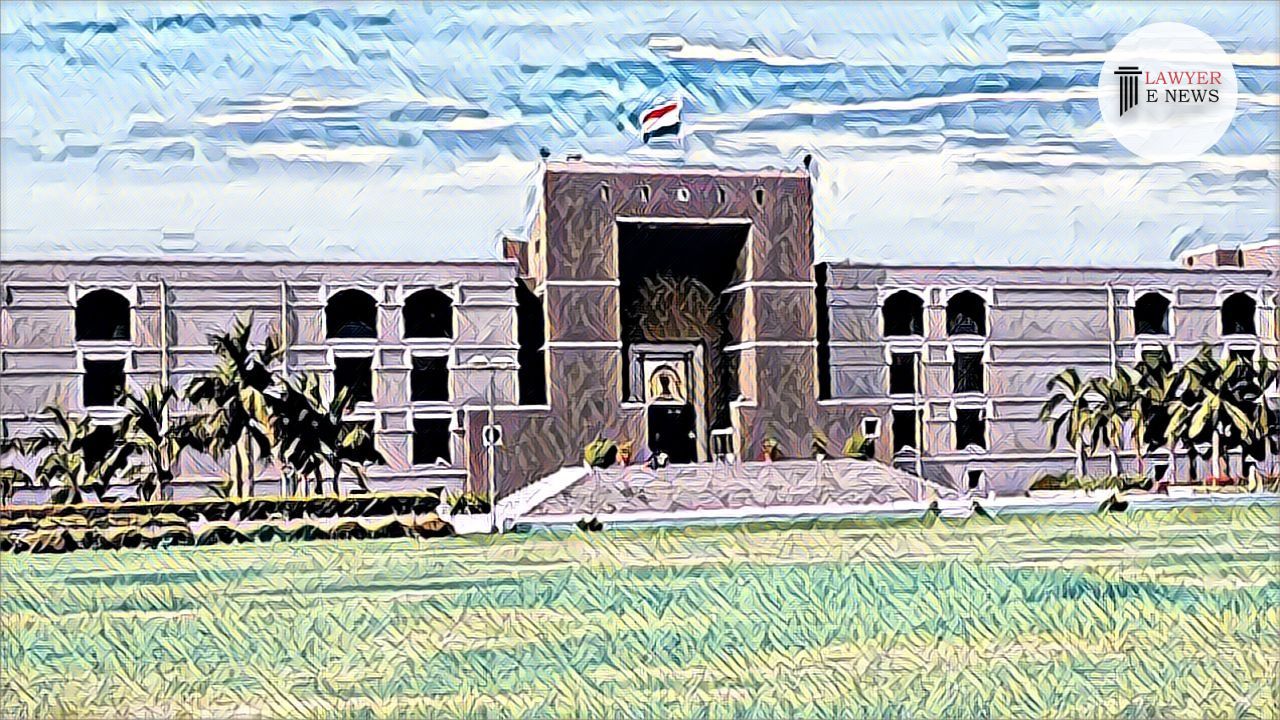-
by Admin
15 February 2026 5:35 AM



In a recent decision, the Gujarat High Court, presided by Justice Ilesh J. Vora, partially quashed the FIR and chargesheet against Feroze Falibhai Contractor in a high-profile property fraud case. The court identified legal and procedural lapses in the charges related to Sections 177 and 181 of the Indian Penal Code (IPC) and Section 6(d) of the Gujarat Prohibition of Transfer of Immovable Property and Provision of Protection of Tenants from Eviction from the Premises in Disturbed Areas Act, 1991. However, the proceedings on other charges, including forgery and cheating, will continue.
Background: Feroze Falibhai Contractor was accused of committing fraud and forgery in the sale of a property located in a disturbed area of Vadodara, Gujarat. According to the FIR filed on August 30, 2020, Contractor allegedly concealed his religion and provided false information to obtain prior permission for the property sale, a requirement under the Disturbed Areas Act. The FIR and subsequent chargesheet included multiple charges under the IPC and the Disturbed Areas Act, leading to a complex legal battle.
Legal Bar on Prosecution – Sections 177 and 181 IPC: The court observed that the trial court’s cognizance of charges under Sections 177 and 181 IPC was barred under Section 195(1) of the Code of Criminal Procedure (Cr.P.C.) without a complaint by a public servant. Justice Vora noted, "The Trial Court could not have taken cognizance of the offence punishable under Sections 177 and 181 IPC, except on the complaint in writing of the public servant concerned." Consequently, these charges were quashed.
Incorrect Invocation of Amended Law – Section 6(d) of the Disturbed Areas Act: Justice Vora identified that the invocation of Section 6(d) of the Disturbed Areas Act was unsustainable as the amendment was not in force at the time of the FIR. "On the date of registration of the FIR, the amended Section 6(d) was not in force, making its invocation legally untenable," the court stated, leading to the quashing of this charge.
Proceedings on Other Charges to Continue: The court declined to quash the FIR and chargesheet in their entirety, stating that the remaining charges, including those of criminal breach of trust, cheating, and forgery, need to be adjudicated by the trial court. "The disputed questions of fact must be tried and tested before the Trial Court," the judgment emphasized.
Legal Reasoning: The judgment extensively discussed the principles of evaluating charges in cases involving allegations of fraud and forgery. It underscored that while procedural and legal bars could invalidate certain charges, other allegations must be scrutinized through a detailed judicial process. "When no offence is disclosed, the Court may examine the question of facts. However, when allegations make out a case for the offences alleged, these must be adjudicated in trial," Justice Vora elucidated.
Justice Vora remarked, "The inherent powers should be exercised to quash proceedings where it appears there is a legal bar against the institution or continuation of the proceedings. However, the disputed questions of fact, especially in cases involving allegations of forgery and fraud, must be examined by the trial court."
Conclusion: The Gujarat High Court's judgment in the case of Feroze Falibhai Contractor vs. State of Gujarat & Anr. highlights the judiciary's nuanced approach in dealing with complex legal issues in property fraud cases. By quashing certain charges while allowing others to proceed, the court reaffirmed the importance of procedural correctness and the need for thorough judicial scrutiny of factual disputes. This decision is likely to influence future cases involving similar legal and procedural intricacies, setting a precedent for careful examination of charges in fraud and forgery cases.
Date of Decision: 30th May 2024
Feroze Falibhai Contractor vs. State of Gujarat & Anr.
